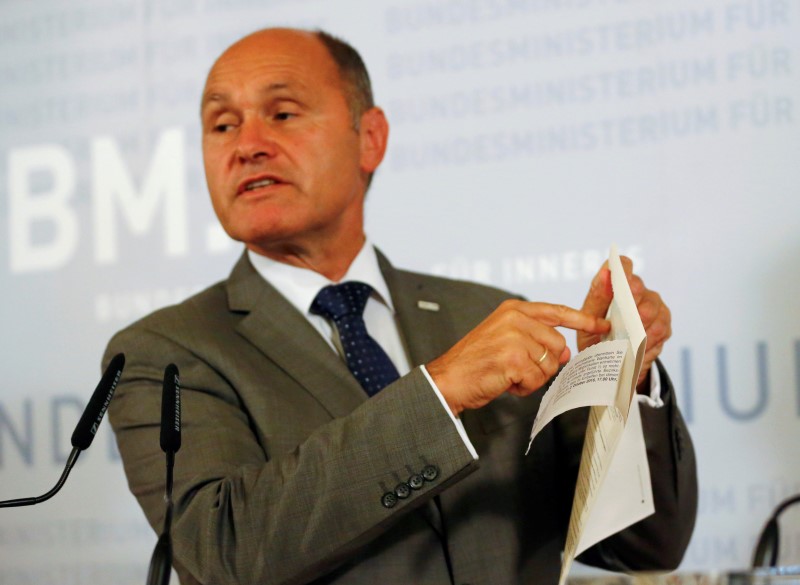By Gabriela Baczynska
LUXEMBOURG (Reuters) - Germany, Austria and Sweden said on Thursday that emergency border checks inside Europe's free-travel zone should remain in place after a mid-November expiry as the EU continues to argue over how to deal with an influx of refugees and migrants.
The EU partly suspended the Schengen zone - where people can cross national borders without border controls - last year amid the chaos of some 1.3 million people crossing the Mediterranean to Europe to flee war and poverty in the Middle East and Africa.
Along with the British decision to exit the bloc, the failure of Schengen is another blow to European integration, with many eastern European countries refusing to take in refugees to relieve "front-line" countries such as Greece and Italy where migrants land.
"You've got to take a look at the reality. In Greece there are 50,000 refugees ... and there are many in the Balkan countries," Austria's Interior Minister Wolfgang Sobotka told his EU colleagues at a meeting in Luxembourg.
"So I can hardly imagine that the system will be functioning on Nov. 15. I think it will probably be necessary to have an extension or we have to think of other steps."
German Interior Minister Thomas de Maiziere said he favoured extending the emergency border checks and French diplomats say Paris would not oppose it.
Germany, Sweden, Norway, Denmark and Austria have the checks in place and diplomats have said they do not expect to fully restore free movement after the mid-November expiry.
The EU's executive says it would like to return to normal by year-end but admitted last month conditions were still not right despite a sharp drop in overall arrival numbers.
EU states still argue over who should take in the refugees who have already made it to the bloc and how to share out the burden of caring for any future arrivals - part of a highly sensitive reform of the bloc's asylum system.
Poland, Hungary, Slovakia and the Czech Republic have refused to host any, angering Italy and Greece where tens of thousands are stuck, as well as Germany and Sweden which are the final destinations for many migrants who trek across the continent after making it to the EU's southern shores.
The easterners say they can help in other ways, for example by sending more guards to help protect external borders.
Sweden's Interior Minister Anders Ygeman warned those states that the payouts they get from the EU budget were at stake.
"In the long run, the tax payers in Sweden will say that if you can chose whether or not to follow some decisions in the EU, why can't we chose to not pay to those countries who do not honour their obligations?," he said.
"We're not there yet but it will happen. It will also happen in Germany and Austria ... The lack of solidarity in the long run also threatens the free movement, as you see with the border controls. That really should make these countries think."
A report by the RAND Europe think-tank commissioned by the European Parliament estimated the one-off costs of re-establishing borders inside Schengen at up to 20 billion euros, with annual operating costs at up to 3 billion euros thereafter.

Disruption to tourism and trade mean the overall cost to the EU economy would be much higher, though difficult to estimate.